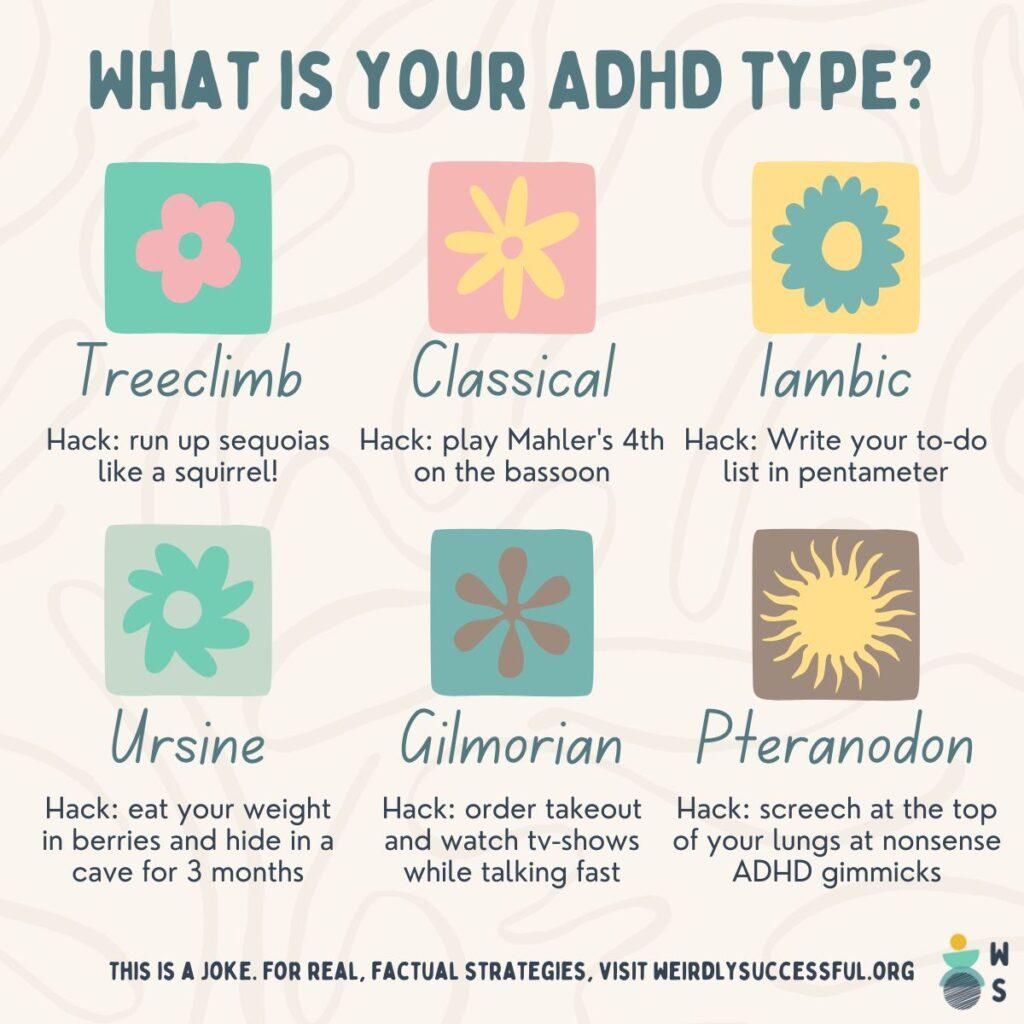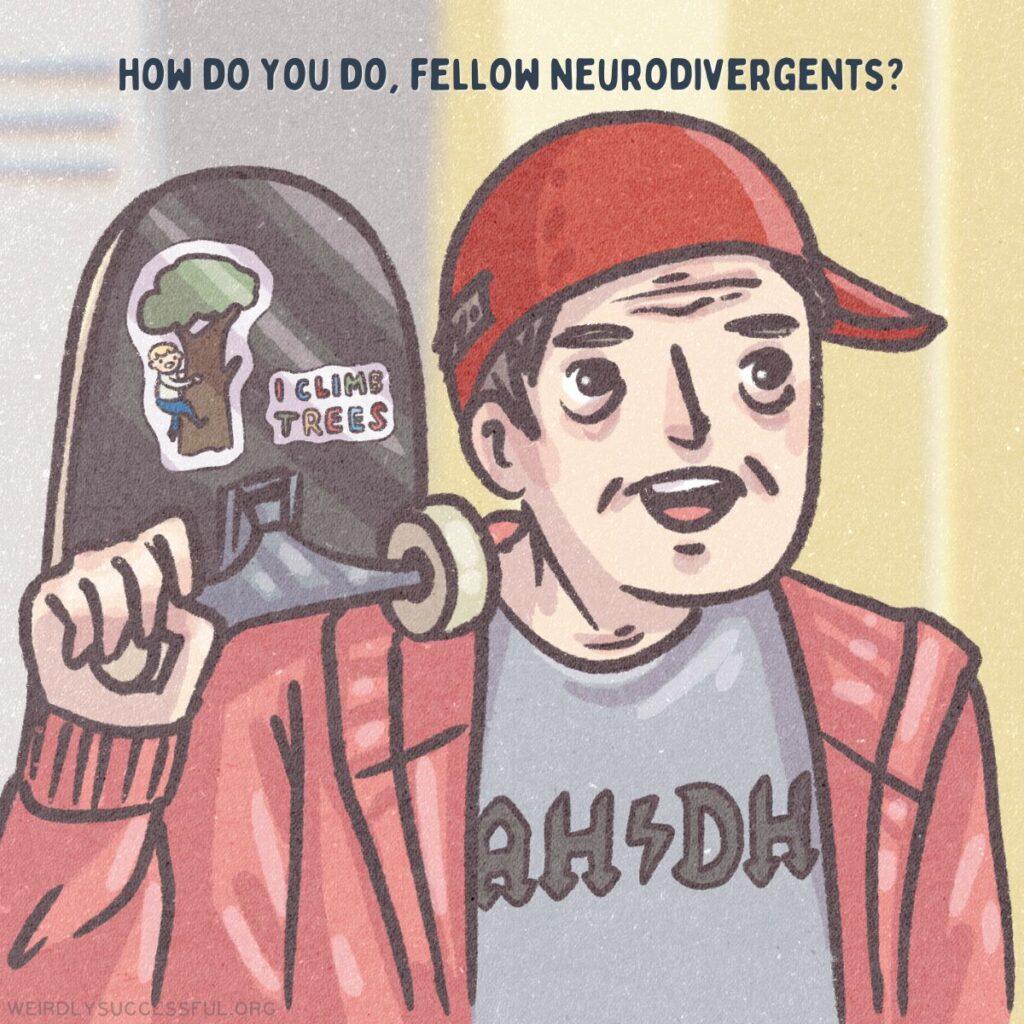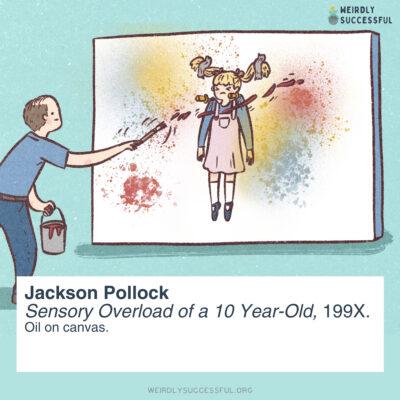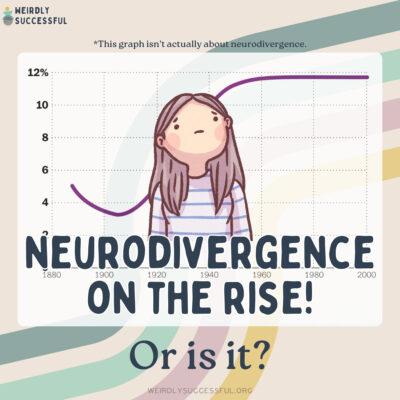Table of Contents[Hide][Show]
- Why are there so many fake “ADHD products”?
- How to tell if an ADHD product is not legit
- Red Flag 1: Non-specific promises and outcomes
- Red Flag 2: Neurotypical solutions for ADHD stereotypes
- Red Flag 3: ADHD feels like a tacked-on afterthought
- Red Flag 5: The product is not by neurodivergent people
- Red Flag 6: No neurodivergent staff or testimonials
- Red Flag 7: Use of trying-too-hard-to-be-trendy phrases
- Red Flag 9: Ableist language in marketing
- Red Flag 10: The goal seems to be “normalizing” neurodivergent individuals
- Final Red Flag: The product maintains ADHD is a personal failing
Apps, productivity systems, quizzes for ADHD types, supplements, oh my! Not everything labelled with ADHD is actually good for ADHD. In this article, we go through 10 red flags you need to keep in mind the next time Instagram’s algorithm shows you another time management app “for ADHD”.
Why are there so many fake “ADHD products”?
Depending on the country they’re in, people might need to wait for years to be able to get a diagnosis or to get the medication and/or specialised therapeutical help they know they need.
And in the end, it doesn’t matter whether that’s because of the deficiencies, underfundedness or overloadedness of the local public health system, the need to self-fund parts of or the entire process, and the strife and tribulations of navigating hostile and gaslighting systems doesn’t change the fact that getting an ADHD diagnosis and then treatment is an uphill battle.
The massive uptick in people seeking diagnosis for ADHD and co-occurring neurodivergent conditions means that the queues will stay long for a long while, even with private assessments. And while having an official diagnosis is one thing, people need support until or beyond a diagnosis or assessment.
Since the pandemic, awareness of ADHD and neurodivergent conditions has grown, which is wonderful. But since we live in a capitalist system, this unfortunately also means private enterprise has quickly moved into this space with tools and supplements to “manage” ADHD.
Which is not in itself a problem.
The problem is that not all of these are benevolent. Many companies saw the opportunity for a quick cash grab. Some relabel their supplements and sell it for “ADHD”. Other app creators hack together a calendar-tracker app, invent bogus science to support it, and sell it to “treat your symptoms”. Grifters gotta grift, but it’s especially insidious when they target and exploit a group of people who are desperate for support and often have to wait years to get it from the healthcare system.

How to tell if an ADHD product is not legit
It is not extremely hard to tell when a product is using ADHD as a buzzword for a quick buck. There are tell-tale signs that show they haven’t done their research, and even that they don’t really know their audience, just want to use them for profit. Be a meddling kid and unmask these companies cosplaying as support. Here are the red flags for ADHD products.
Red Flag 1: Non-specific promises and outcomes
“This product helps people with ADHD. This app is for your ADHD brain.”
They usually offer boilerplate results without customization or without considering individual needs and differences. They sell one specific thing – usually a supplement but can be other products, like essential oils, creams, magic pillows, and friendly unicorn alarm clocks.
No other advice is available, just buy their doodad and it will magically solve all the problems for you, no matter your circumstances or background.
Questions to ask:
- Which part of ADHD does this product help exactly? Everyone’s ADHD is different. And it cannot possibly help with everyone’s everything. There’s no “The ADHD“. It’s like when products are advertised as “it helps your immune system” without ever specifying in what way it does that.
- How does it help? What is the outcome? What challenges does it offer support for? If the text just says “it helps you focus”, always ask: what part of struggling with focus does it help and how does it do it exactly?
Good example: This product helps you develop flexible routines in your daily life, which can help people with ADHD who struggle with structures and habits, and/or have different levels of energy each day.
Boom, see, it sounds more friendly and specific already.
Red Flag 2: Neurotypical solutions for ADHD stereotypes
What does this look like? Solutions and frameworks are neurotypical, trying to pigeonhole ADHDers into conforming to techniques that were not created for neurodivergent people, e.g. SMART goals and other productivity techniques that without custom rehauling will not work for everyone.
Many of these services – usually apps – often create seemingly scientific categories to sort you into, for example, “Find your ADHD type”, and then offer a list of nonsense sprinkled with smart-sounding terms, like frontal lobe, limbic, adrenal and over-focused.
Yes, the frontal lobe is a thing and it has a vital role in executive function, but it is not part of any “type” of ADHD.
As of 2023, ADHD has three types: hyperactive, inattentive, and a combination of the two. That’s it. If you see anything that seems like astrology for neurodivergence, don’t engage.

Their backing is also usually vague. “Research shows” is often mentioned, without anything cited specifically.
So while these services seemingly use words related to neurodivergence, what follows is a bunch of nonsense with the goal of conforming to the neuronormative way of work and living.
Red Flag 3: ADHD feels like a tacked-on afterthought
“This product is good for weight loss, people with glasses, long hair, tiny dogs and ADHD.“
Some products have ADHD shoehorned in as a flavour, not a feature. This is especially jarring when ADHD is mentioned in a list of seemingly unrelated things, when, in reality, any individual with neurodivergent conditions needs customizable support.
Question to ask:
- How does ADHD come into the picture again? If ADHD is a long list of things that the product or service is meant to help with, but there’s no explanation as to how it specifically helps with ADHD, start being suspicious. Specificity is always a good thing: it shows expertise, relatable examples and that the people sharing their knowledge know what they’re talking about. Don’t be afraid to ask.
- How did you become an ADHD expert overnight? If a product previously had no ADHD connections and suddenly have it listed without any explanation as to the change (if not on the sales page, then in the FAQ), that’s a red flag as well. Oh, Joanne, suddenly your homemade raspberry jam is amazing for people with ADHD? How interesting. Go away.
Also be wary of explanations using or mixing language and references from entirely different contexts, especially if they are seemingly doing this to distance themselves from neurodivergence by making the traits sound more magical or special (“empath”, “gifted”, “clairsentience” and so on).
Speaking of FAQ…
Red Flag 4: No FAQs or specific use cases
Many of these products have nothing to support their claims with.
How to find evidence for the product working
- Having an FAQ (Frequently Asked Questions) about a service or product can showcase a variety of use cases, customer journeys and experiences. It also shows the exact audience the product or service is for while demonstrating that the creator knows their audience and how to help them. Look for a list of frequently asked questions on the website of the product or service.
- Testimonials are also great, but be wary of non-specific language (“this is great!”) and very generic-looking stock photo people. Video testimonials also often turn out to be sponsored influencer videos, and of course, people rave about a product if it’s scripted and compensated by the creator… Of course, testimonials should also come from fellow neurodivergent individuals if the product is aimed at us.
- Before buying anything, do your research: find reviews from people who were not sponsored by the company.
- Always look for detailed outcomes, specific benefits, and measurable outcomes if applicable to the product.
Red Flag 5: The product is not by neurodivergent people
This is not gatekeeping. Neurotypical people can educate themselves about neurodivergence. They can understand issues neurodivergent people might face and then formulate solutions for those issues. But then they need to show proof of the work.
Questions to ask:
- What can you show that supports your statements?
- Did they enrol in training?
- Did they base it on neurodivergent research?
- Did they test their product on service on more than one neurodivergent individual (remember, we’re not all the same)? Show us the data.
Red Flag 6: No neurodivergent staff or testimonials
A group of neurotypical people making a product for neurodivergent people without a neurodivergent person being in the room is alike to a room of white male writers, directors and executives trying to figure out what those elusive creatures called women might speak like.
In both cases, the end product will probably not be very representative of that part of the population, and can lead to a lot of othering and neurosplaining disguised as “helping”.
Having neurodivergent members of staff also means that the company is not just profiting off a big chunk of society without representing them, so that’s a promising sign.
An additional red flag is that there is no member of staff visible whatsoever. Many apps simply use stock graphics or stock photography to showcase their features, and there is no human to be seen in their marketing material. Often their “testimonial” adverts also use AI-generated voices to read out the captions.
With AI language models used more and more to create generic content for a fast cash grab, seeing and hearing actual, real humans should be the bare minimum when you invest in a product or service.
Red Flag 7: Use of trying-too-hard-to-be-trendy phrases
“Slay your neurospicy vibes, kween!”
A continuation of the above: when you don’t walk the walk, the talk can be off.
Look out for trying-too-hard-to-be-trendy phrases, cringe-worthy and not accurate use of in-group expressions and any other signs that the creator might be trying to pass as neurodivergent for profit. Not a great way to cosplay.
When in doubt, ask what they mean by that exactly.

Red Flag 8: Shaming language used in product/service
“How to stop being lazy. Do anything you want. You just don’t want it enough. Just do it. Work on your willpower. Be more disciplined, stop your excuses, and be productive every day.”
Questions to ask:
- Why are you still doing this in 2024? Seriously. Hustle culture was unhealthy even when it was in its heyday, but it’s especially harmful for neurodivergent people who are already prone to burnout, overworking and crippling perfectionism.
- How is just having more willpower will suddenly solve everything? The problem with executive dysfunction is not that you don’t want it enough – if wanting to do something would be enough on its own, you would’ve been able to do it already. Grinding your teeth and pushing through may work in the short run (if at all), but is harmful and unhealthy.
When you hear the phrases that infuriated you at school, as a child, in the workplace, that’s a good sign that the person creating that resource has a non-ND-friendly attitude.
Medication shaming is also common among scammy products
Often in many ADHD products, there’s also medication shaming. You can notice this red flag when the product implies that if you take medication to help with your condition, you are “cheating”, and the morally superior option is “not depending on medication”.
Look, medication doesn’t work for everyone, but to say that all titrated, psychiatrist-prescribed stimulants and antidepressants are choosing the “easy way” is problematic, to say the least.
When you take medication for your conditions and they support you in not feeling awful, that’s not being addicted – similarly to how diabetics who have to take insulin are not addicted to insulin. This decision concerns you and your doctor only.
Unfortunately, many productivity/”ADHD” apps consider taking medication as a “bad habit” to break, and doing things without them the ideal end result. However, be warned: coming off of long-term medication should be monitored by your doctor, and not randomly prompted by a productivity app as a “life hack”.
If you wish to change your dose, consult with an expert who knows your medical history and can assist you in the process.
Red Flag 9: Ableist language in marketing
“Cure, get rid of, fix, and tame your ADHD. Stop letting your ADHD do X, control your ADHD saboteurs.”
No. Just no. These expressions suggest that ADHD, Autism, and other Neurodivergent Conditions (that science says are hereditary) are just something you can make go away. This is not the case at all.
ADHD is not just superpowers and rainbows, but the hard parts need more nuance than just steamrollering them through with “discipline”, “willpower” and “getting motivated”. Yes, it is not uncommon to have adaptations and coping mechanisms that are not the best for you, but getting “rid” of these is not as simple as breaking a bad habit. And breaking bad habits is also not that simple, but let’s not digress. 🙂
Anyone who treats your ADHD traits, like daydreaming. chronic procrastination or being late as a discipline problem and not something complex is ignoring the real experience for a quick (and short-lived) fix.
Talking about your neurodivergent traits as if they are an enemy to defeat or conquer just reinforces the idea that something is wrong with you and you need to vanquish these parts from your life.
Even if you are on the perfect-for-you balance of medication and therapy, and have the ideal adjustments, support system and strategies for your needs, you will never, ever just stop being neurodivergent. And this is okay. The goal is to find support that makes your life happier, easier and enjoyable, not to stop being neurodivergent.
Speaking of…
Red Flag 10: The goal seems to be “normalizing” neurodivergent individuals
“Be like the others, fit in, finally be popular, stop being weird! Change how you are! Make everyone you meet like you! Be normal!”
Some services and products have one goal and one goal alone: make you less annoying and irritating, teaching you to mask better and hide who you are for the sole purpose of not being so bothersome for neurotypicals.
Any service that suggests that
- something is inherently wrong with you,
- it is your fault for being like this,
- and the only way to be happy is to stop being such a burden on society and your family
is not looking out for your best interest. Especially if they say this just to sell you something.
And this was a really polite way of not saying anything harsher, even though that would also be totally justified.
This attitude makes you inferior without actually helping you to exist as you are and giving you the support you need.
Yes, hiding who you are and struggling in silence might spare you a few rounds of bullying and conflict, but this is not the solution for you to feel better and explore what you really need in life. And anyone who wants you to hide is not your friend.
Helping you to hide and suppress your needs is just gaslighting in a helpful disguise. And you don’t want to pay for gaslighting when you can get that from society for free at any time. 🙂

Final Red Flag: The product maintains ADHD is a personal failing
“You’re only feeling bad because you haven’t found The One Right Fix yet.”.
The product puts all the responsibility on you. The creators don’t mention any systemic social oppression, like capitalism, ableism, racism or sexism. The product doesn’t acknowledge the unfair conditions you have to deal with.
Getting support or a diagnosis still highly depends on where you live and how society perceives you.
Neurodivergent individuals, especially women and marginalized groups are still massively underdiagnosed, over-incarcerated and can go without support their entire lives.
Offering quick fixes and all-encompassing solutions while failing to consider the social aspect of being a neurodivergent human on this planet in the 21st century is ignoring a big, big chunk of our reality.
And this is when the toxic positive “just use your superpower!” attitude is downright harmful. Yes, these systems will be not dismantled overnight, but pretending they don’t even exist is just plain wrong.
Join the conversation!
What are your personal red flags when someone tries to sell you something “for your ADHD”? Leave a comment, we’re still old-school here when it comes to chatting on blogs. 🙂







 How to talk about neurodivergence in a kind way: terms & phrases to know
How to talk about neurodivergence in a kind way: terms & phrases to know
Leave a Reply